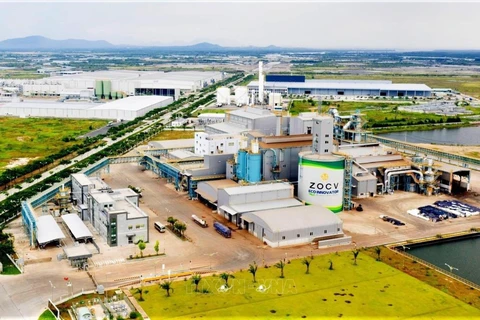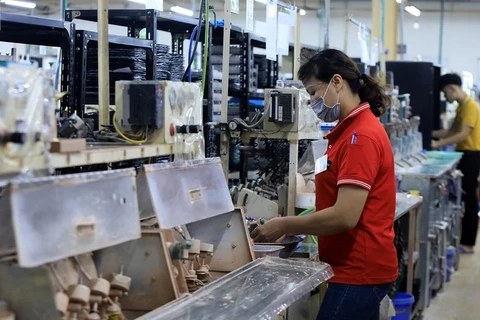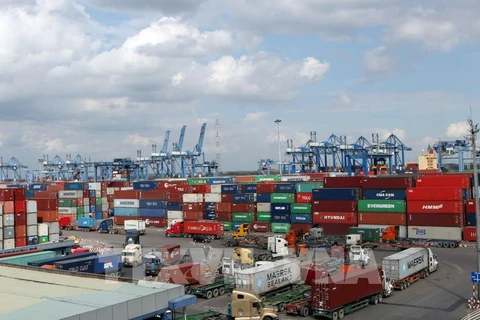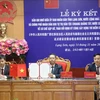Hanoi (VNA) – The Central Institute for Economic Management (CIEM) and the German Agency for International Cooperation (GIZ) on January 15 jointly held a workshop on Vietnam's economic situation in 2023 and prospects in 2024.
Launching a report titled “Vietnam's economy in 2023 and prospects for 2024: Reforms to accelerate growth recovery” at the event, CIEM experts forecast that Vietnam's GDP will grow by 6.13% in the first scenario and 6.48% in the second scenario with the entire year’s exports increasing by 4.02% and 5.19%, respectively.
The country's trade surplus is predicted to hit 5.64 billion USD and 6.26 billion USD in the first and the second scenarios, respectively, while the average inflation this year is forecast to stand at 3.94% and 3.72%.
CIEM Director Tran Thi Hong Minh said that Vietnam’s economy in particular and the global economy in general will continue facing headwinds in 2024.
However, Vietnam can reap further positive economic achievements in the coming time if the quality of institutional reforms have been improved.
Vietnam does not only rely on fiscal and monetary solutions to promote economic growth but also creates a lot of new motivations from economic institutional reforms. Those driving forces come from promoting innovation, developing new economic models, reforming the business environment, restructuring the economy, and perfecting regional linkage planning and institutions.
The Government has also frankly acknowledged and asked for advice on the issues that need to be resolved, she stressed.
Minh emphasised that experts’ recommendations on strengthening fiscal and monetary expansion for the country’s economic growth are also based on the assessments of improving institutional quality and macro-economic management.
CIEM's report also evaluates the results of Vietnam’s implementation of the Regional Comprehensive Economic Partnership (RCEP) over the past two years.
Accordingly, the results in the period 2018-2023 showed that the proportion of Vietnam's imports and exports with RCEP member countries has seen a downward trend and the utilisation of incentives that the RCEP offers is still relatively low, just 0.67%.
Experts recommended that the country to continue to overcome challenges in implementing the RCEP as well as effectively accessing and maximising benefits from the trade deal./.


























